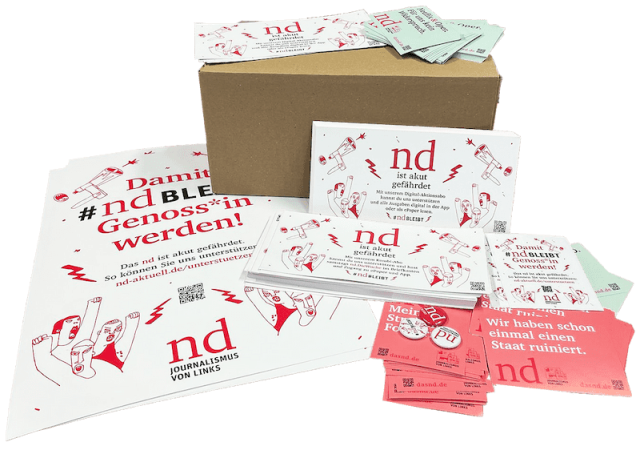Like the ultras: Al Nassr fans support their team in the city derby against Al Hilal.
Photo: REUTERS/Ahmed Yosri
Football fans in Saudi Arabia should not call themselves Ultras because that could sound like rebellion for the state. But they want to behave like ultras, including recently at the derby in the capital Riyadh between Al Hilal and Al Nassr. It is the most important game on the Arabian Peninsula. More than 50,000 people came to the King Fahd Stadium to watch the first team play against the second team. The fans’ chants echo under the curved tent roof so loudly that you sometimes want to cover your ears.
Al Hilal, founded in 1957, and Al Nasr, 1955, have shaped football in Saudi Arabia for almost seven decades, but they have only received international attention for a few months – since the billion-dollar sports offensive in the kingdom. 45 journalists from abroad also traveled to the Riyadh derby. They want to see how the new, highly paid players have settled in in the desert: Cristiano Ronaldo and Sadio Mané at Al Nassr. Or Aleksandar Mitrović and Kalidou Koulibaly at Al Hilal, their colleague Neymar is currently injured.
Many of the reporters are staying in the country for a few more days because the Club World Cup has been taking place in the port city of Jeddah since Tuesday. European participants Manchester City, winners of the Champions League, will face Fluminense Rio de Janeiro, who won the Copa Libertadores in South America, in the final on Friday.
nd.DieWoche – our weekly newsletter

With our weekly newsletter nd.DieWoche look at the most important topics of the week and read them Highlights our Saturday edition on Friday. Get your free subscription here.
What is also interesting is what football says about Saudi Arabia off the field. Around 70 percent of the population is younger than 30. Oil revenues will fall, and the monarchy will no longer be able to offer all citizens a lucrative job in the state. Saudi Arabia will remain a prosperous country but according to the World Bank, youth unemployment is at 24 percentt. The younger generation is becoming less and less familiar with the old elites from religion and tribal networks. Younger people want to develop more freely and creatively. But how much freedom of movement will the royal family allow them?
At the derby in Riyadh, it is noticeable that the vast majority of spectators are barely older than 30. Only a few watch the game in the traditional thawb, the white, ankle-length robe that is otherwise omnipresent in the cityscape of Riyadh. A fan group of the host Al Hilal calls itself “Blue Power”. They don’t stand behind the goal like the European ultras, but rather on the lower level of the main stand. The youngest spectators, many of them school age, have the best view of the field. There are also a few women there.
A plateau is built in front of the stands. The leader of “Blue Power” then runs back and forth energetically. He encourages clapping, chants, and thousands follow his instructions. As the teams enter the field, they hold up blue and white scarves. Their choreography, prepared over weeks, spans the entire stand and shows the combative face of a man. In between, fans light flares. The smoke clouds the stadium.
Rituals like these are reminiscent of the ultras in Europe and Latin America. But there is a difference, says Amer, a follower of Al Hilal since childhood. »In Europe, the ultras often form an opposition to their clubs. For us, ‘Blue Power’ is supported financially and organizationally by the club management.” The cheers, the choreographies, the flares in the crowd: the fans have to coordinate almost everything with the clubs. Here you can see a symbolism for something bigger in the small things. The once closed Saudi Arabia wants to open up – but under strict control.
Amer, in his early 30s, does not want to give his real name. He works for a state-affiliated company, he says, and football is a way for him to deal with stress. Like many of his friends, Amer studied in the USA, they have traveled around the world and could also start a job in New York or London. But they want to have a say in the transformation of Saudi Arabia. The new strength in football is promoting Saudi patriotism, says Amer: “We’re not just doing this to impress the West. We do this primarily for our society.«
Amer stands in the stands and waves his blue and white Al Hilal scarf. When Cristiano Ronaldo has the ball at Al Nassr’s opponent, the Al Hilal fans shout “Messi, Messi.” There isn’t much more provocation to be heard during the game. The Saudi fan culture is largely free of violence, aggression and racism, says Amer. You can hardly see police officers in uniforms around the King Fahd Stadium.
Anyone who wants to start a conversation as a journalist in Saudi Arabia knows that certain topics should be left out in order not to embarrass or even endanger the informants. What Amer doesn’t mention: 196 people were executed in Saudi Arabia last year, the highest number in three decades. Many activists were sentenced to long prison terms. In Reporters Without Borders’ press freedom rankings, the Gulf state is ranked 170th out of 180 countries evaluated. This system is a deterrent and means that crime is low, including in football.
The central figure is the crown prince and de facto ruler Mohammed bin Salman. In the West, he is seen as a brutal ruler who even has Saudi journalists like Jamal Khashoggi murdered. In Saudi Arabia, many younger people describe him as a reformer who is pushing back the ultra-conservative Wahhabi clergy and disempowering the once powerful religious police.
Amira, for example, went to Japan to study because she could no longer bear the psychological pressure. She also doesn’t want to give her real name so that she can speak more freely. Amira, in her mid-30s, talks about her youth in the noughties: Cinemas and concerts were forbidden in Saudi Arabia. Women were not allowed to drive cars, had to use separate entrances and required permission from a male guardian for many matters. “I was repeatedly stopped by the religious police and pointed out that my headscarf was out of place,” she says. “We never even dreamed of competing as athletes for our country.”
Now, at the beginning of December, Amira is taking part in a martial art for the second time »Saudi Games« part, a major sports festival that takes place in several locations in Riyadh. A central location is the “Fan Zone”, a campus with sports halls and courts for beach soccer and basketball. There are also tents set up for e-sports and film screenings, as well as food stalls and a concert stage. “The everyday lives of our mothers and grandmothers took place indoors,” says Amira. »I’m glad that things are different now and that I can experience this change.«
Amira has more than 5000 followers on Instagram. She shows herself in photos doing strength training, in front of her mirror or having coffee with her dog. In none of them is she wearing the abaya, the traditional black overdress that is no longer compulsory in Saudi Arabia but is still worn by many women. Amira says that she often receives messages from girls, mostly about nutrition tips. She lives with the fact that women are still in a much worse legal position than men in Saudi Arabia, but she doesn’t want to talk about it publicly.
Women like Amira are likely to be very popular with the Crown Prince because they irritate Western ideas of the oppressed Saudi woman. And they allow themselves to be harnessed into the national narrative. For a future without oil, Saudi Arabia not only depends on new economic sectors, but also on a productive and diversely trained workforce. In 1990, only eleven percent of women in Saudi Arabia were employed. In 2019, after the driving ban for women was lifted, it was said to have been 18 percent, now 35 percent. The Saudi Football Association now also has women’s teams and a vice president. Amira, who studied medicine, now sees her future in Saudi Arabia.
In the next ten years, the desert state’s population could grow from 36 to 41 million. Every year more than 250,000 people enter the job market. Even in casual conversations in Riyadh, you can quickly hear critical voices complaining about expensive rents or poor local transport. The opening of the metro, under construction since 2014, has been repeatedly postponed. These are issues with which one should not offend the Crown Prince, because the failings lie with his predecessors.
To »Saudi Vision 2030« This includes billion-dollar investments in footballers, golf professionals or Formula 1 races, writes Islamic scholar Sebastian Sons in his book “The New Rulers of the Gulf”. In addition, “the Saudi government wants to build a domestic sports industry that creates jobs for young people and offers new attractions.” Sports facilities should play an important role in the planning of cities and leisure centers. By 2030, 100 million tourists are expected to come to the country every year, five times as many as last year.
Naif finds these plans impressive, but he is not sure whether society is as willing to reform as the government. Naif, in his early 30s, discovered running during his studies and has now completed five marathons. He drives his car through the north of Riyadh. Eight-lane highways, glittering office towers, huge shopping centers. But there are no cycle paths, green spaces or recreational sports facilities anywhere in sight. “I was criticized several times by strangers because I walked through the city in shorts and allegedly showed too much skin,” says Naif.
In February, a marathon will be held in Riyadh for the third time, again with more than 10,000 participants. Every time, says Naif, there is a little more talk about exercise, about health promotion and possibly also about the lack of sports teachers. Almost 20 percent of the population in Saudi Arabia live with diabetes, and more than 50 percent are overweight. The government wants to increase the number of people who exercise at least once a week from 13 to 40 percent by 2030. “That would relieve the burden on the health system,” says Naif. “And strengthen economic productivity.” As long as this productivity grows and ensures prosperity, the stability of the monarchy will probably also be secured.
#ndstays – Get active and order a promotional package

Regardless of whether it is pubs, cafés, festivals or other meeting places – we want to become more visible and reach everyone who values independent journalism with an attitude. We have put together a campaign package with stickers, flyers, posters and buttons that you can use to get active and support your newspaper.
To the promotional package
judi bola online sbobet88 sbobet sbobet
